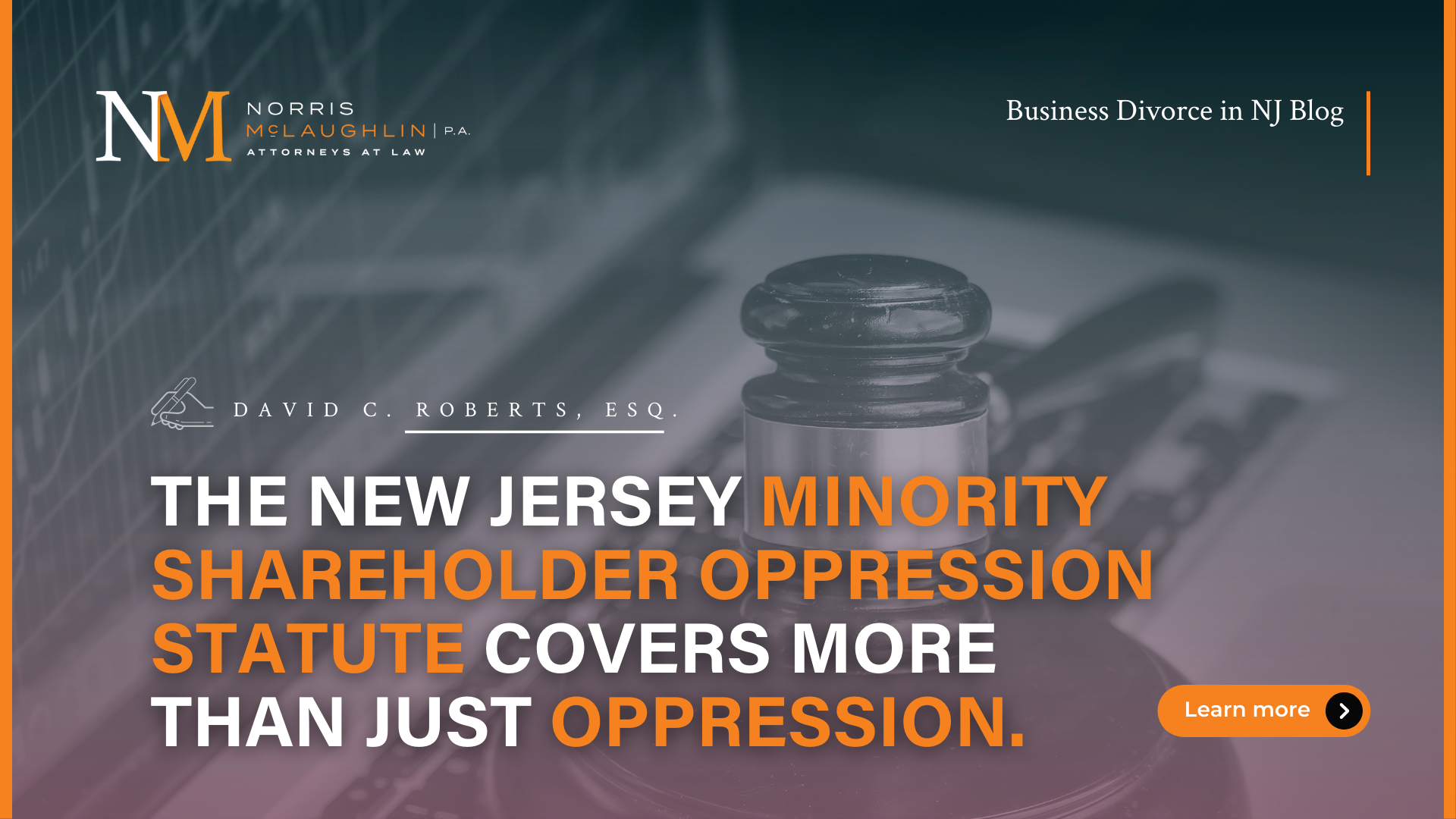Employment Termination As Oppression
Shareholder oppression can take many forms, but one of the most common is terminating a shareholder/employee from his or her employment. New Jersey case law discusses “oppression” under the applicable statute as a frustration of a shareholder’s “reasonable expectations.” Terminating one’s employment may satisfy this test.
Not every shareholder/employee who is terminated may succeed in making this argument. However, if a shareholder was one of the founders of the company, or at least became a shareholder with the express (or implied) understanding that he was doing so to become an employee, as well, this argument may have considerable merit.
The logic of this argument is compelling. Becoming a shareholder may have considerable appeal if one also works in the business, able to directly contribute to its success, as well as see first-hand how it is performing. However, when one is no longer employed, you may view yourself as being “stuck” in the company with no way out.
All too often shareholders look to their Shareholders Agreement only (if there is one) to determine how they may go about being bought out. Of course, the valuation method set forth in that agreement may be outdated, or may never have truly reflected a way to obtain fair value for one’s shares. However, depending on the circumstances of the employment, and of the termination, there just may be a better way out of the company.




